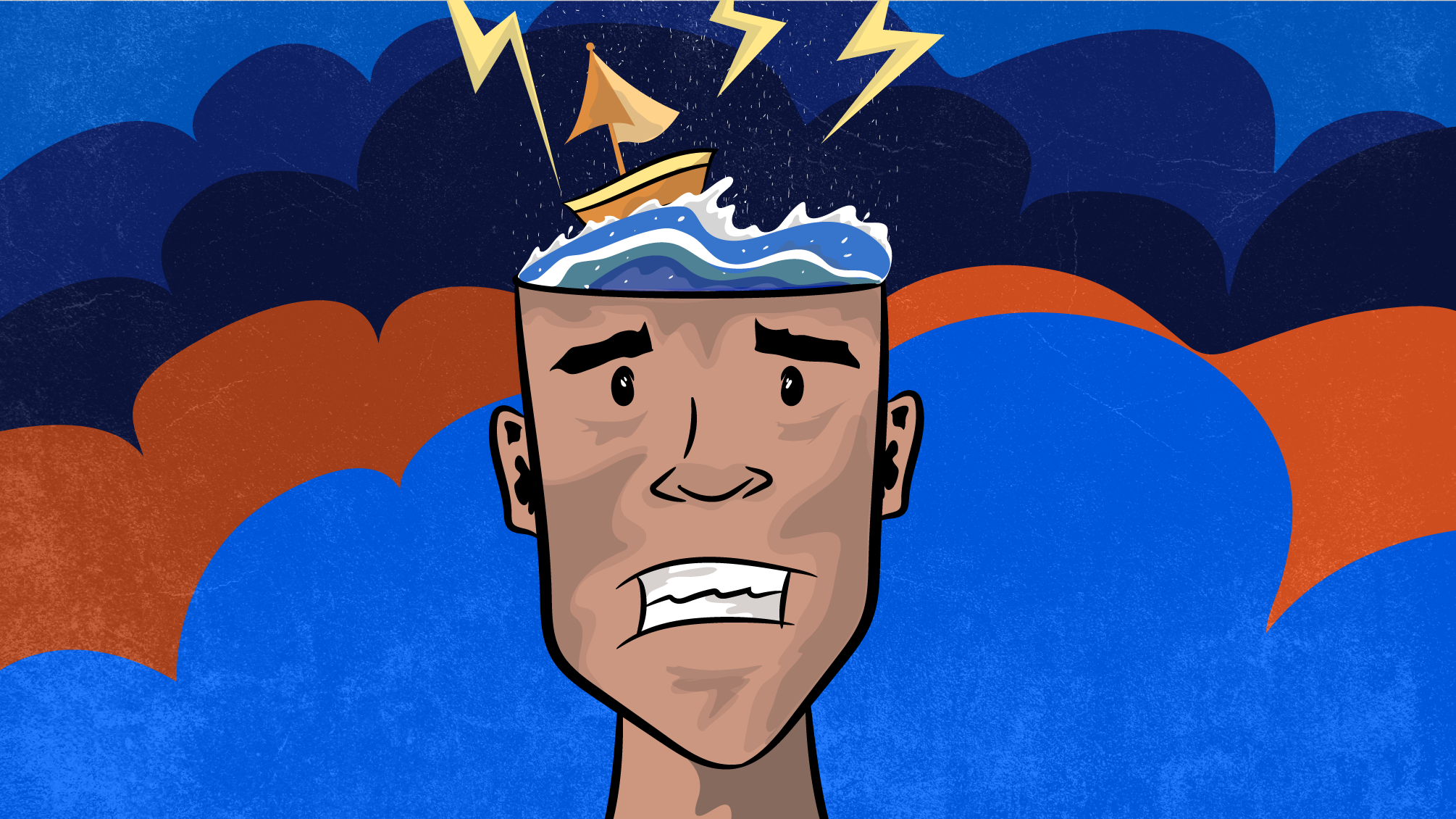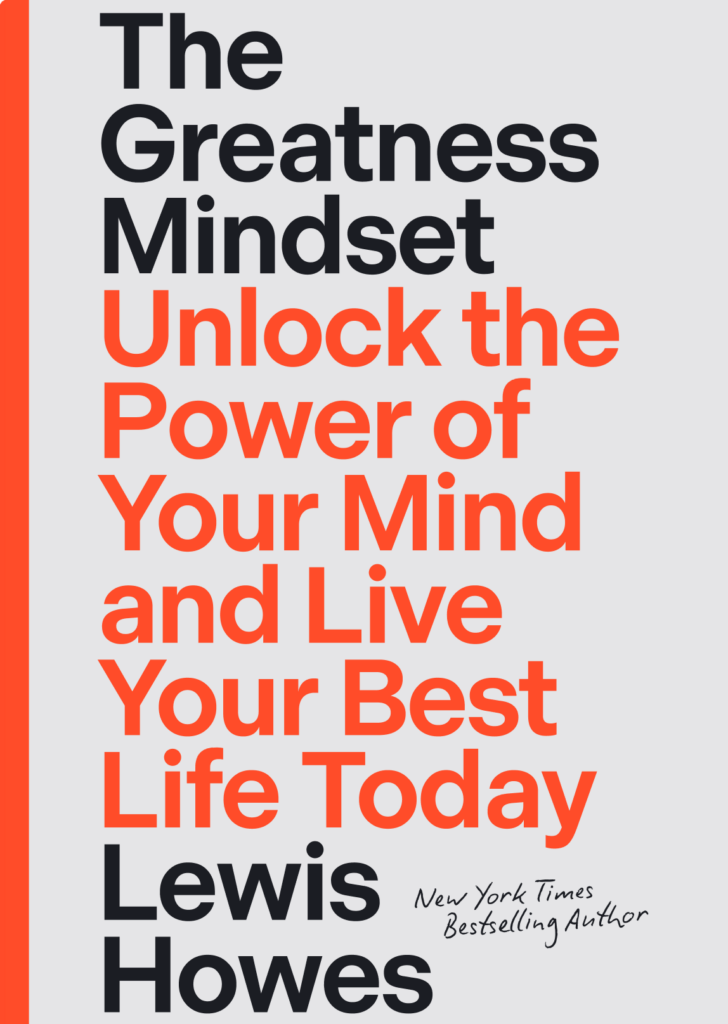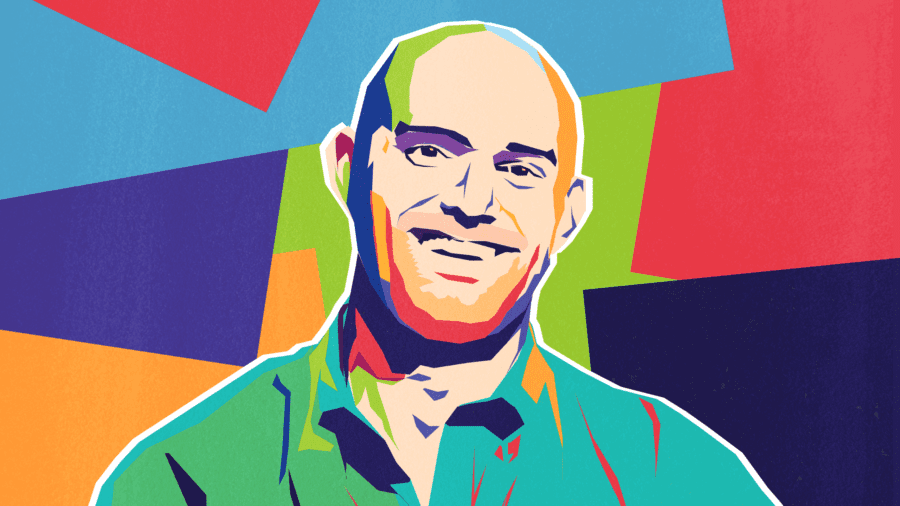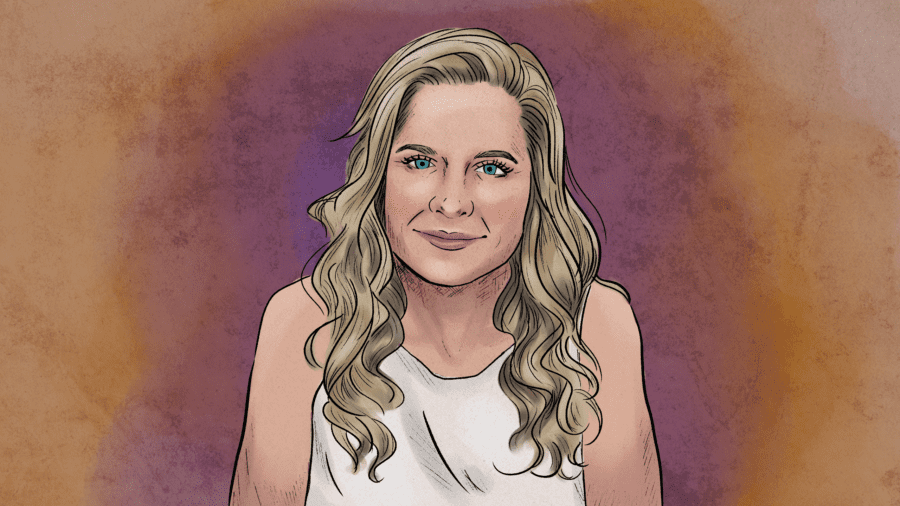
7 Emotional Agility Tools to Better Navigate Panic & Overwhelm
Have you ever asked yourself, “Why am I so easily overwhelmed?” You’re certainly not alone — this is a common struggle that many people deal with in their daily lives.
Fortunately, we can adopt tools for better handling moments in which we feel panicked and overwhelmed. Award-winning Harvard Medical psychologist Dr. Susan David offers an effective solution for navigating these moments: emotional agility.
Dr. Susan is the world’s leading management thinker, and she’s contributed to numerous notable publications including The New York Times, The Wall Street Journal, and The Washington Post. She also wrote the bestselling book Emotional Agility: Get Unstuck, Embrace Change, and Thrive in Work and Life.
We’ve got a ton of great advice to share from Dr. Susan to enhance your ability to handle emotions, so let’s dive in!
Why Emotional Agility Is a Critical Tool for Your Life
Dr. Susan David observed that a common approach people use to combat negative and overwhelming feelings is to force themselves to remain positive. You’re likely quite familiar with this approach and the idea that positivity can reshape your negative emotions.
According to Dr. Susan, this approach is way off and is actually harmful. Attempting to stifle your emotions by bringing a positive spin to every situation doesn’t work. For Dr. Susan, this realization came at a very young age when her father tragically passed away from cancer. Rather than address the overwhelming grief that comes with losing a close loved one, her mother insisted on pretending that everything was okay and tried to instill the same mentality in Susan. This false positivity only made her feel worse because she was lying to herself and others about her emotions.
Sometimes things aren’t okay, and no matter how hard we try to deceive ourselves with false positivity, the underlying negative emotions are still there. Instead, we can adopt the approach of emotional agility, which acknowledges our negative and overwhelming emotions. Rather than push our emotions aside, emotional agility addresses our underlying feelings.
For example, rather than saying, “I am not overwhelmed,” during a time in which you’re having an anxiety attack, you reframe it by saying, “I am overwhelmed, and it feels like things are not going to be okay, but I know that this feeling will pass.”
This approach enables us to better handle common emotional and mental health struggles such as anxiety and panic.
One important note that we’d like to share is that there is NOTHING wrong with struggling with mental health, and sometimes we need more than emotional agility tools to overcome these challenges. If you find yourself having a hard time with panic attacks, anxiety, or overwhelming emotions, consider seeking mental health assistance. EVERYONE can benefit from therapy, so we highly advise considering this approach if you’re financially able. We recommend using the National Register of Health Service Psychologists’ tools for finding an available therapist.
That being said, you can still use these emotional agility tools in addition to seeking mental health assistance. Adopt these invaluable strategies so that you can live a happier and healthier life:
#1. Don’t Bottle Up or Brood Over Your Emotions
Having more control over your emotions DOES NOT mean denying them. People often feel pressure to pretend that things are fine and they’re not feeling anxious, panicked, and overwhelmed.
This is a form of false positivity, and it’s a dangerous mechanism for attempting to avoid negative emotions because it merely creates more stress surrounding them. Pretending like you’re fine can only work so long — eventually, those emotions will rise to the surface in an unhealthy way.
Sadly, many people take this approach when trying to move on from negative or emotionally challenging experiences. For example, have you ever gone through a devastating breakup and pretended like you were fine in an attempt to move forward with your life? Although we may be able to temporarily avoid the painful emotions by lying to ourselves and saying that we’ve “moved on,” those unaddressed emotions will likely return.
According to Dr. Susan, bottling up our emotions is associated with a higher risk of burnout and overall lower levels of well-being.
On the opposite end of the emotional-processing spectrum, we may fall into the trap of dwelling too much on our negative or overwhelming emotions.
Some people become so focused on their emotions or the circumstances leading up to the emotions that it becomes unhealthy. Rather than truly addressing the emotions and moving on, the emotions fester, leading to bitterness and increased negativity.
Fortunately, once we learn how to process our emotions in a healthy way through emotional agility, we can begin to truly heal and move on.

The Greatness Mindset
Learn the secrets of some of the greatest minds in the world. Unlock the power of your mind and live your best life today.
Learn More#2. Practice Identifying and Labeling Your Emotions
Our emotions are complicated, and it’s often challenging to identify exactly what we’re feeling. Often, it becomes tempting to write off our complex emotions as merely “stress” or “anger,” but frequently, there’s a more specific underlying emotion (or emotions) that we fail to recognize.
Dr. Susan recommends that we reach beyond our surface-level emotional terms to address the deeper emotions lying within. Uncovering more specific emotions is called emotional granularity.
For example, maybe you feel frustrated or even angry with a friend who cancels plans with you at the last minute. Rather than merely noting the surface-level emotion and saying, “I’m angry with my friend,” you can practice emotional granularity to uncover what the real problem is and why you’re feeling this way. Maybe you’re afraid that you and your friend aren’t as close as you used to be, and you’re worried about drifting further apart from them.
When you’re able to put a more accurate label on your emotions, you can address them more effectively.
Practicing emotional granularity also uncovers the multifaceted nature of our emotions. Going back to the friendship example, maybe you’re scared of losing the relationship with your friend, and you’re also disappointed in them because you feel that you make more of an effort to maintain the friendship. Additionally, maybe your friend breaking plans also hurts your self-esteem, and you’re concerned their sudden cancellation indicates there’s something wrong with you.
None of these things are necessarily true, but addressing these multi-layered emotions enables you to better handle your intense feelings such as anger, fear, panic, and overwhelm that bubble up to the surface. If you’re feeling angry with your friend, it’s better to try to uncover the reason why you’re feeling this way rather than sending them an angry text or brooding on your negative feelings.
#3. Recognize That Some Stress Is Actually Good
A common narrative in our society is that stress is inherently bad, and if you’re feeling stressed, then there’s a problem. In reality, not ALL stress is harmful — some of it is actually good.
So what kind of stress is beneficial?
According to acclaimed professor of psychology at American University, Kathleen Gunthert, there are two types of stress: distress and eustress. Distress results from something negative, such as your friend canceling plans, while eustress is positive stress, such as the stress caused by starting a new career that you’re excited about.
Studies suggest that small doses of eustress have beneficial effects. One study even indicated that small amounts of stress may prevent oxidative damage, which might contribute to a person developing cancer, diabetes, and Alzheimer’s disease.
The amount of stress one feels determines whether it’s beneficial or negative. For example, heightened stress can cause a person to feel so overwhelmed that they have difficulty maintaining motivation, while small to medium levels of stress can increase one’s motivation.
Stress becomes unhealthy when it’s chronic. An individual typically feels chronic stress as a result of an especially stressful incident, and this prolonged stress can lead to a higher risk of developing chronic disease, skin issues, poor lifestyle choices, and even smaller brain size.
Fortunately, emotional agility tools can combat unhealthy stress levels.
Join In 200 Million+ On The Journey to Greatness
#4. Engage in Mindful Breathing and Other Calming Strategies for Anxiety and Stress
If you’re a longtime reader of Greatness.com, you’re likely aware that we promote mindful breathing exercises that benefit our mental, physical, and emotional health.
Although there are many exceptional breathing exercises you can adopt into your routine to improve your overall health, there are particular ones that focus on reducing stress and relieving anxiety. One such exercise is called the mindful breathing method.
Mindful breathing combines deep breathwork with calming focus, making this practice especially effective for addressing anger, fear, anxiety, and stress. Take the following steps to tap into this invaluable exercise:
#1. Go to a safe and quiet location.
#2. Get into a comfortable position.
#3. Adopt a calming focus. Focus on a particular word, sound, breath, or memory.
#4. Inhale and exhale deeply through your nose, and with every inhalation and exhalation, visualize, listen, or speak your calming focus.
#5. If you find your mind beginning to drift during the exercise, simply say the word “focus” or softly tap on your body to reel yourself back into your breathing exercise.
In addition to this highly effective breathing technique, you can use other tools to reduce your feelings of anxiety, fear, and overwhelm:
#1. Journal out your thoughts.
This practice can be highly effective for both reducing stress and uncovering the emotional granularity that we discussed above.
#2. Go play outside.
Getting outdoors is a great way to reduce stress and other overwhelming feelings. “Play” can mean anything, whether it’s exercise, playing a sport, or engaging in another activity that takes your mind away from your stress.
#3. Talk to a friend about what’s going on.
Sometimes we need someone to listen to our problems, and although therapy is a great way to express what’s stressing you out, you likely cannot call up a qualified mental health professional at a moment’s notice unless you use a therapy-over-the-phone service. Talking to a friend is a great way to articulate what’s bothering you and stop overthinking.
#4. Prioritize your sleep.
Getting adequate sleep is an incredibly important and often overlooked part of one’s overall mental and emotional health. If possible, try to get at least eight hours of good sleep. Also, avoid drinking alcohol before bed because it reduces your sleep quality.
#5. Try cold therapy.
Cold therapy has many benefits, including increased mental toughness and improved mind-body connection, and this practice has also been found to relieve stress. Consider taking a cold shower in times of stress.
#5. Be Kind to Yourself
Being kind to yourself is a critical part of maintaining positive mental and emotional health.
Dr. Susan teaches that the ideal childhood comes with a parent or caregiver who serves as a security base, enabling the child to explore and grow in the world knowing that they’re secure. In adulthood, we become our own security base, and an important part of fulfilling this role is being compassionate and patient with oneself.
This relates to emotional agility because serving as your own security base means forgiving yourself and allowing yourself to feel your emotions rather than stifling them.
Actively practicing self-care is also an important part of being kind to yourself, and developing positive habits that serve you can reduce stress and improve your mood. Some key ways you can practice self-care through daily habits include:
#1. Eating healthier: Although there’s usually nothing wrong with having an enjoyable, unhealthy meal from time to time, it’s important to be conscious about the food you eat. Your body’s nutrition directly impacts both your physical and mental health, and eating unhealthy foods can lead to depleted energy levels and a poorer mood.
#2. Exercising: We know it’s tough, but engaging in regular exercise has been found to improve emotional and mental health.
#3. Spend more time with friends and/or family: Engaging in conversations with loved ones can do wonders for your stress levels and overall mental and emotional health. If possible, talk to friends and/or family for thirty minutes a day.
#4. Reduce your technology intake: Although the internet is full of helpful information that can help us improve our lives, it also contains an overwhelming amount of bad news, distractions, and social media photos that make us feel jealous of other people. All of these things can become overwhelming and create unnecessary stress in our lives, so consider reducing your intake.
#6. Have a Plan for When You’re Feeling Panicked and Overwhelmed
Even though there are many ways you can improve your ability to handle overwhelming emotions, it’s easy to get swept up in a panic or anxiety attack and not use the tools. That’s why it’s helpful to have a game plan in place beforehand.
Consider writing yourself a step-by-step procedure for when these overwhelming moments occur. Firstly, you can have a detailed script ready for yourself. You shouldn’t write a script based on false positivity, but you can include calming affirmations, such as, “This feeling will pass,” and, “I can handle these feelings.”
Perhaps the next part of your procedure includes the mindful breathing practice we discussed above or another calming breathing technique.
Finally, consider having an easy-to-access activity that helps you calm down in these moments, such as listening to music or taking a walk. As we discussed, you want to address the underlying reasons for why you’re feeling panic or overwhelming emotions, but sometimes in the moment, it’s best to do whatever it takes to calm down so that you’re in a better state of mind for reflection.
#7. Accept That You Are NOT Your Emotions
Dr. Susan teaches that your emotions are data rather than directives. Although you need to be patient with yourself and understand that your feelings are valid, your emotions do not need to control your behavior. When you improve your emotional agility, you still feel your emotions, but you can approach them more analytically so they don’t control you.
Additionally, it’s important to recognize that the emotions we feel are only part of us and that you can take a more distanced approach when addressing them. For example, rather than saying, “I am overwhelmed,” which linguistically positions your emotion as a piece of your identity, you can say, “I am noticing this overwhelming feeling. What are the underlying reasons for why I am feeling this way?” Then, you can proceed to journal your feelings or engage in another practice that enables you to uncover your emotional granularity.
Learn More About Handling Panic and Overwhelm
Navigating the challenges of daily life can be overwhelming, and sometimes we need additional support and tools to help us address our sometimes-intense emotions in a healthy way. Fortunately, Dr. Susan David features a number of helpful resources on her website to enhance your emotional agility, including articles, podcasts, and videos.
Again, we also want to emphasize that there’s absolutely nothing wrong with seeking assistance from a mental health professional, and often, this is the best option for addressing mental health challenges.
Remember, everyone has mental and emotional struggles. You’re NOT alone in needing some additional help from experts such as Dr. Susan. Be kind and patient with yourself, and improve your ability to handle these feelings with proven emotional agility tools.
Greatness Authors
Greatness Authors is a collection of writers, thinkers, curiosity experts, and students of the world who are committed to bringing you the most up-to-date, impactful, and inspiring information surrounding Greatness topics.

Redefining Poetry: How Instagram Sensation Rupi Kaur Showed That Poetry Is for Everyone

The 7 Best Vitamins to Naturally Promote Better, Uninterrupted Sleep According to Shawn Stevenson

The Science of Forming Healthy Habits & Letting Go of Bad Ones, According to Author James Clear

9 Signs You Have Imposter Syndrome at Work and How to Overcome Performance Insecurity

Olympian Yusra Mardini’s Incredible Story of Resilience, Rescue, and Refugee Rights










